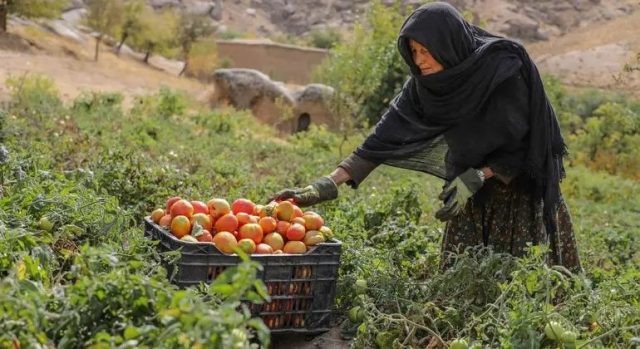UNITED NATIONS, Friday, May 2, 2025 (WNP): Afghanistan is facing a deepening humanitarian and economic crisis, with three-quarters of its population struggling to meet basic daily needs, according to a sobering new report by the United Nations Development Programme (UNDP).
The report highlights the disproportionate impact of the crisis on vulnerable groups, including female-headed households, rural communities, and internally displaced persons. It warns that without urgent and targeted interventions, the country’s trajectory will remain dire.
“UNDP’s current analysis and new data indicate the continuation of a deeply troubling trajectory for the Afghan people, who have been grappling with extreme vulnerability over the past decade,” said Kanni Wignaraja, UN Assistant Secretary-General and UNDP’s Regional Director for Asia and the Pacific.
Afghanistan’s economic recovery remains hamstrung by a stagnant local production base, minimal job creation, and an overwhelming dependence on imports and foreign aid. This fragility has been exacerbated by political uncertainty, shrinking international assistance, ongoing economic stagnation, and the effects of climate change.
“Humanitarian aid alone is insufficient,” said Stephane Dujarric, UNDP’s Resident Representative in Afghanistan. “There is a pressing need for long-term, sustainable economic and social solutions to address the scale of the crisis.”
The report also highlights a growing gender disparity, driven by increasingly repressive laws that restrict women’s rights, mobility, education, and employment. With just seven percent of Afghan women engaged in formal work outside the home in 2024, the UNDP estimates that such restrictions could cost the Afghan economy nearly $920 million between 2024 and 2026.
The agency urged Afghan authorities to lift the curbs on women and girls and called for comprehensive support to women-led businesses as a pathway toward inclusive recovery.
Meanwhile, Afghanistan is bracing for an influx of returnees, with an estimated 600,000 to 1.5 million Afghans expected to return in 2025 from neighboring Pakistan and Iran, both of which have tightened their stance on refugees and migrants.
“With the anticipated arrival of hundreds of thousands of returnees this year and a marked reduction in international support, Afghan communities will have to navigate substantial challenges that will further strain an already fragile subsistence,” Wignaraja warned.
The UNDP stressed that without significant international engagement and internal reforms, Afghanistan’s humanitarian crisis risks spiraling into a prolonged catastrophe.




